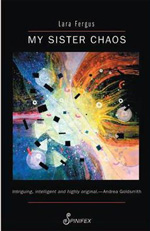
This fine novel grows out of the tension between order and chaos. Civil war brings chaos to previously orderly lands, and maps bring order and a finite structure to an endlessly disordered world. Yet seeking perfect order in life can itself bring a sort of chaos. These tensions play out in the lives of two sisters, refugees from a country destroyed by war.
Names are not provided. We see most of the story from the viewpoint of the first sister; call her the mapmaker here. Her concern is with order and safety. In the peaceful country to which they have escaped, she works at her profession, cartography, during the day. At night, she goes back to her empty, rented house, where the lights have blazed all day so she can look in before entering to check for intruders. Locking herself in, she turns off all lights but a headlamp, and works through the night, mapping the house in minute detail, starting with the bare room that holds her drafting table. She draws obsessively careful contours of the small irregularities in the floor. She seeks a fixed, reliable point from which to make sense of the world. She worries over Zeno's paradox; how can she map all the way from the table to the wall, or to the door, if infinite steps are needed?
Her sister, an artist, comes to visit, bringing a disruptive, human, unwelcome disorder to the mapmaker's bare house. Superficially better adjusted, the sister is obsessed with memories of her own lover—a woman—and the lover's child, left behind in the old country. Chapters set there, a land that had once been peaceful and ethnically diverse, recall the sisters' pain and desperation, but skip over whatever politics brought forth the killing and the rape rooms, and convey briefly the violence that they have suffered. Between them, the sisters hold the key to important information about what happened, a key found in a small, telling marker in a map--a key that may bring them some degree of resolution.
Fergus' spare prose builds intensity and anguish through what the reader must infer. The sisters' characters are perfectly
drawn in just a few strokes. The mapmaker's obsessive point of view usually carries the reader along, but with moments
of laughter when the reader breaks free and sees the absurdity of her actions. A story of this sort risks being too
schematic. Fergus avoids that trap with deeply felt metaphor. If you think that novels that concern the world we read
about in the news must always be preachy and formulaic, you need to read this book.

Spinifex, paperback, 9781876756840
